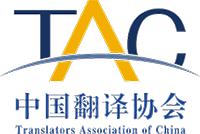
What We Commemorate When We Commemorate Qu Yuan
Qu Yuan (c. 340-278 BCE), acounselor in the court of theState of Chu, championed“fair governance,” advocating legal and institutional reforms and alliance with theState of Qi to resist the growing power of the State of Qin. He was consequently ostracized by thearistocracy and exiled to the far reaches oftheYuan and XiangRivers in present-day HunanProvince. With the resolve of a warrior, however, he remained unwavering in pursuing his ideals and lived by the doctrine of a gentleman. Never did he allow any worldlyfoulness to defile his noble purity, or any shred of laxity orresignation toweaken his determination.
Qu Yuan expressed his moral standards by virtue of his names, as seen in the opening of hisLisao (“Encountering Sorrow”):“My father named me Zhengze and styled me Lingjun.” “Zhengze” means integrity, uprightness, andadherence to principles of being a man,while “Lingjun” means intelligence, wisdom,fairness, and justice. In his Ju song (“Ode to the Tangerine Tree”),he used the“solitary and steadfast” tangerine tree tosymbolize his noble character, vowingnever tocompromise his ideals even in the face of death. He seemed to observe all the chaos of Chu from high above with clarity, yet felt powerless to change anything.
Qu Yuan’severlasting legacy lies in hisdeep concern for the people asdemonstrated byhis literary works and political aspirations, and his greatness in his persistent compassion for, and commitment to,his country andhis people.
The popularity ofstories about Qu Yuan and his works in people’s lives,and their central role inthe Dragon Boat Festival commemorations,areattributed to his words and deeds imbued withboundless love forhis country,people, and native culture; such love contains a resilience sustaining Chinese culture and spirit.Though helamented,“My countrymen understand me not; why should I still yearn for the old capital?” andconsidered, “Why not simply leave?” he eventually decided to stay because of hiscommitment tothe spirit andculture of his homeland.
Now the annual Dragon Boat Festivalfeatures themed commemorations throughout China, includingstorytelling about Qu Yuan and the festival, recitals of his poetry, and dragon boat races. These events celebrate his integrity, righteousness, andlove for his country andhis people, whileencouraging the public to better understand traditional culture and help fostera deep sense of national pride and identity.
When commemorating Qu Yuan today, we commemorate the spirit of Tianwen (“Asking Heaven”)he epitomizes, a spirit shared bytraditional Chinese scholars undaunted by death in their bold exploration of theunknown. In his long poemof the same name, Qu Yuan posed questionsabout topicsranging from natural phenomena such as thedivision between heaven and earth, the interplay ofyin and yang, and celestial bodies, to myths, legends, and historical accounts of sages, villains,andthe rise and fall of dynasties.Through these inquiries, he expressed his viewson the cosmos, history andpolitics. Awe-inspiring is his explorative spirit—hevalued facts over mere books, anddared to question and criticize.
China’s series of planetary exploration missions is also named Tianwen, which embodies the Chinese people’s critical attitude toward conventionalbeliefs and their pursuit of scientific truth. Without the former, there would hardly be any possibility of the latter. Today, Qu Yuan’sTianwenencourages thequestioning of established misconceptions and rigid views of history; furthermore, it inspires intellectual breakthroughs and scientific innovationthroughconstant criticism and relentless quest.
A spiritual symbol, Qu Yuanhas alwaysplayed, and willcontinue toplay an extraordinary role in building a sense of communityamong the Chinesepeople. Without such a great sage, the entire Chinese scholarly community would be deprived of part of its spiritual underpinning, and Chinese history some of its heroic albeit tragic resonance.
The spirit of Qu Yuan will endure as will Chinesecivilization. Ourcompleteconfidence in traditional Chinese culture finds expression in this: upholding principles without being conservative, and valuingheritage without being retrogressive.